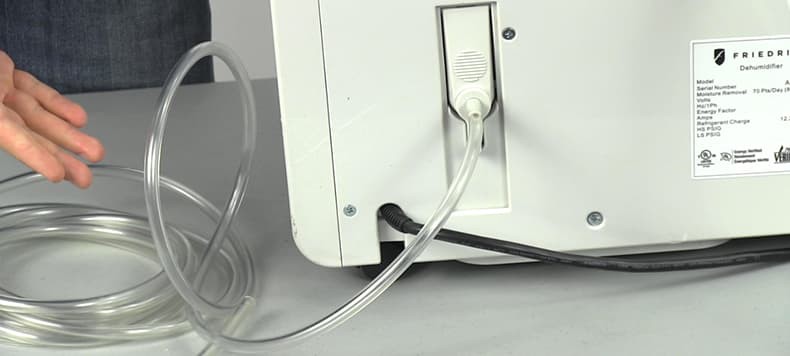Dehumidifiers remove excess moisture from the air, thereby reducing your indoor humidity. High humidity promotes the growth of mold and dust mites, and it can cause rot and damage the structural integrity of your home or office. When shopping for a dehumidifier, consider the following basic questions.
Do I Need a Dehumidifier?
Consider these situations to determine if a dehumidifier is the right solution for you.
- Excess Moisture: If you have areas that smell musty or see evidence of mildew or mold, you need a dehumidifier.
- Damaged Wood: Excessive humidity may damage wooden support beams and flooring, especially in crawl spaces and unfinished basements.
- Allergy Symptoms: High humidity may be the culprit if you suffer from constant allergy symptoms. Allergens such as mold and dust mites require a specific humidity level to thrive. The American Academy of Allergy, Asthma, and Immunology recommends keeping relative humidity below 50 percent to reduce indoor allergens.
- Stale Air: If you aren't experiencing high humidity levels but still struggle with stale air, you may needâ fresh air ventilation rather than dehumidification. A good bathroom ventilation fan is an excellent way to control humidity.
How Much Space Do I Need to Dehumidify?
It's essential to choose the right size dehumidifier. A unit that is too small may not be able to remove enough moisture from the air, and it will waste energy and strain the appliance by working too hard. For best results, select the correct size unit based on the square footage of the space you need to dehumidify (small space dehumidifiers, medium space dehumidifiers, or large space dehumidifiers).
If your space is at the high end of a dehumidifier's capacity, choose a larger size to ensure optimal efficiency. Consider whole-house dehumidifiers if you live in a consistently humid climate.
What's My Indoor Temperature and Humidity Level?
If you're unsure of your indoor humidity and temperature levels, a thermometer or hygrometer is an excellent way to determine them.
If you plan to place your dehumidifier in a low-temperature space, such as a garage, basement, or crawlspace, you need to ensure it will continue to operate efficiently at low temperatures. Otherwise, the unit's coils may freeze up.
If you need to dehumidify a space with extremely high humidity, you'll need a high-capacity unit that can handle larger moisture loads. In addition, consider dehumidifiers for specific areas such as crawlspace dehumidifiers, basement dehumidifiers, and units for indoor pools and spas.
How Will I Eliminate Collected Water?

All dehumidifiers collect the water (or condensate) they remove from the air, and you should consider how to dispose of this water. Standard dehumidifiers contain buckets that need to be emptied regularly, and they automatically shut off when the bucket is full.
Some dehumidifiers, such as dehumidifiers with drain hose access, allow you to connect a hose to the unit, which uses gravity to drain the water into a floor drain or direct it outdoors. Many room dehumidifiers feature an internal condensate pump, which pumps condensate upward or horizontally to a convenient location.
Are There Other Features I Should Look For?
One notable feature to look for is a dehumidifier with an Energy Star rating, which indicates that the unit is energy efficient. Convenience features such as digital controls, remote control, Wi-Fi enabled, onboard humidistats, and timers are also worth considering when browsing available dehumidifiers.
Many basement and crawl space units allow for ducting, so you can dehumidify multiple spaces simultaneously. Ducting also allows you to place the dehumidifier in a closet or a separate area to dehumidify a remote space. Many Santa Fe dehumidifiers offer ducting, internal condensate pumps, and various other features discussed here.
Still Have Questions?
For more information on dehumidifiers, see our detailed Dehumidifier Buyer's Guide and Frequently Asked Questions About Dehumidifiers. If you're unsure which dehumidifier is best for you, we can help take the guesswork out of making a decision. Contact one of our air treatment specialists at 1-800-934-9194.


